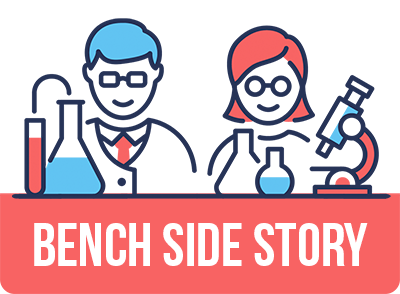An international team of researchers from Adelaide and the United States has engineered bacteria capable of detecting mutated DNA released from colorectal cancer cells, opening the door to faster disease detection.
Led by Dr Dan Worthley, Associate Professor Susan Woods and Dr Josephine Wright from SAHMRI and the University of Adelaide, in partnership with Professor Jeff Hasty at the University of California San Diego (UCSD), the study was published today in the prestigious journal, Science.
The team engineered bacteria called Acinetobacter baylyi (A. baylyi), which is known for its ability to sample and integrate DNA from its environment. Researchers leveraged this natural competence to detect the mutated KRAS gene, an important driver of colorectal cancer.
A/Prof Woods says they dubbed this technology ‘CATCH’, which stands for, Cellular Assay of Targeted CRISPR-discriminated Horizontal gene transfer.
“CATCH has the potential to detect bowel cancer early with the aim of preventing more people from dying of this and other cancers,” she said.
“This study demonstrates how bacteria can be designed to detect specific DNA sequences to diagnose disease in hard-to-reach places.”
In preclinical testing, the team found that the sensor bacteria were 100% accurate in differentiating between models with and without colorectal cancer.
“We were thrilled to see transfer of DNA from the tumour to the sensor bacteria,” A/Prof Woods said.
“This shows that our biosensing system can be used to catch colorectal cancer DNA within a complex ecosystem.”
Dr Dan Worthley says potential applications of the technology extend beyond cancer.
“In the future we will detect and prevent many diseases, including bowel cancer, with cells, not drugs,” he said.
“We hope that this invention, of life detecting life, will be useful for clinicians, scientists and engineers to help the community wherever and whenever DNA detection is important.”.
While further studies are needed before progressing to clinical trials, researchers are confident this latest discovery represents a significant advance in the field of living diagnostics while setting the stage for the timely and accurate delivery of targeted treatments.
You Might also like
-
Links investigated between poor sleep and onset of dementia
Watch Samantha Bramich, a PHD candidate at the Wicking Dementia Research and Education Centre, University of Tasmania talk on identify the prevalence of rapid eye movement sleep behaviour disorder (RBD) in Tasmania and how poor sleep contributes to the onset of dementia and other diseases.
-
Dr Meghan McIlwain
DR MEGHAN MCILWAIN, CLINICAL RESEARCH MANAGER
PRESIDENT, THE NEW ZEALAND ASSOCIATION OF CLINICAL RESEARCH,
AUCKLAND, NEW ZEALAND -
Paramedics in the Community
Dr Brendan Shannon is a registered paramedic and Head of Postgraduate Programs and Deputy Head of Department of Paramedicine at Monash University.
Brendan has a keen research interest in alternative care pathways, non-transport, referral services, paramedic practitioners and community paramedicine. His Doctoral research focused on investigating the experiences of health services when implementing alternative care pathways.



